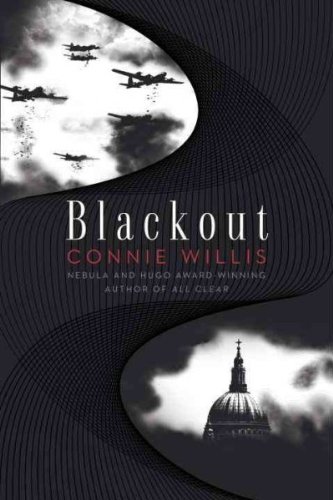Blackout
To the staff of the Oxford time travel lab in 2060, visiting the past is as routine as taking the tube. Historians can go back to observe and report on behavior at critical junctures without becoming involved. Interfering with the past is anathema; but little is left up to chance. Participants are trained, outfitted, and programmed for drop sites that are safe. Transport back to 21st century is readily available—except when it isn’t.
Because something goes awry in the Oxford lab, three experienced travelers, sent back to observe wartime behavior in the 1940s, arrive at the wrong place or on the wrong date. Little goes according to plan and, worst of all, the return sites are closed. Unprotected by the lab, unprepared for danger, burdened by knowledge of the past, the three link up in London—just in time to experience the horrors of a city under bombardment.
Reading Blackout is not a restful experience. Willis uses a stream of conversation to show what war was like on the ground, virtually hour by hour. Dialogue, spoken and internal, carries the plot and, as the point of view shifts between protagonists, gives their perspective on events. When contemporary characters fail to act in accordance with preconceptions, this is fascinating. At other times, the protagonists (and readers) are battered with quotidian details.
The author is to be congratulated on her painstaking research and her characterization of individual Londoners, but verisimilitude comes with a price. Blackout is long, skewed by shifting viewpoints, slowed by the volume of detail, and yet incomplete. The story stops short, to resume in a second volume, All Clear. None of this will deter the many fans of Connie Willis, however, or readers with an avid interest in wartime England.










